~~April 13, 2015~~
The information included below is something that I knew a bit about. Puerto Rico became a commonwealth of the USA in 1952. I was two years old at the time.
As I grew up, all I knew was how benevolent the USA had been with my country. The presence of the US permeates Puerto Rican daily life, its culture, its way of all more than 100%.
I can understand how I thought so highly about the USA that one of my goals was to live here. I have attained that goal. I doubt that I will ever go back to live in the Puerto Rico of today … the Puerto Rico “molded” by the “mighty” USA.
For many reasons, Puerto Ricans have lost what really make us a country. The “benevolent benefactor” has a very dark side to it.
As I grew up, I remember the “rumblings” of the Nationalist and Independence Movements. They have all but totally been squashed by the mighty power of the “benefactor“. It has always, and still continues to this day, taken advantage of Puerto Rico.
Sadly, I don’t think this will ever change. If it does, it would be very damaging to Puerto Rico. The spirit of the “Boricuas” is there …. but I doubt that the the necessary tools and the will to start again and continue and uphill battle will be there.
And I’m supposed to say: “Thank you, USA“?
Makes me think about how many other countries feel the same.
The area that comes to mind because it’s so close to current times is the Middle East.
HortyRex©

Puerto Rico is an unincorporated territory of the United States located in the Caribbean Sea. It is a small island with a population of almost four million citizens.
On July 25, 1898, during the Spanish American War, United States invaded Puerto Rico and commenced a long relationship between the two.
With this list, I’ll try to underline eight atrocities committed by the United States in Puerto Rico.
~By: JOSE L VEGA SANTIAGO~
OCTOBER 26, 2012
DISCLAIMER
“As it appears …. full read/full credit/all information gathered and presented by above listedwriter. My intention is to share his work.”

#8: “La Operación”
“La Operacion” is a documentary that highlights the female sterilization policy. This policy was implanted by the United States as part of FDR’s “Operation Bootstrap” in a move toward industrialization. By 1974 35% of the Puerto Rican women were sterile and this number reached 39% by 1981.
The problem with this sterilization policy is that most of the Puerto Rican women were misinformed about the sterilization process and most of the women didn’t know what the consequences would be.
Part 1 of 4
Uploaded on Apr 16, 2010

#7: Vieques
Vieques is an island municipality of Puerto Rico located in the northeastern Caribbean, it is also known as “La isla nena.” Vieques has a total area of 134.4sq miles and is inhabited by more than 9,000 viequenses. From 1941 to May 1, 2003 the United States Navy used Vieques for naval training and testing. From 1941 to 1942 the U.S. Navy expropriated 22,000 of Vieques 33,000 acres, by 1963 the Navy owned 22,600 acres of Vieques, almost 70% of the island.
In 1948 they commenced bombing exercise which continued for 55 years. Over the course of their stay, more than 22 million pounds of military and industrial waste was deposited on the island. The island was bombarded an average 180 days per year and in 1998 the Navy dropped 23,000 bombs on the island. Professor Jose Seguinot Barbosa, Director of the Geography Department in the University of Puerto Rico at Rio Piedras, states in his study “Vieques, the Ecology of an island under siege” that the eastern tip of the island constitutes an area with more craters per kilometer than the moon.
As a result of all this, the cancer rate in Vieques is 27% higher than in the mainland. Most of the elements and toxic compounds dumped in the island were arsenic, lead, mercury, cadmium, depleted uranium and napalm. Studies show that the ground water in Vieques is contaminated by nitrates and explosives. Testing done in the Icacos Bay showed concentrations of cadmium in crabs 1,000 times greater than the World Health Organizations tolerable ingestion maximum dosage.
Heavy metals have been found in other species of fish.

#6: Radiation Experiments
Dr. Pedro Albizu Campos was a prominent leader in the independence movement of Puerto Rico. Albizu was imprisoned numerous times for seditious conspiracy against the United States. While in prison, Albizu said he was a subject of human experimentation without consent or warning. The U.S. Government’s response was that Albizu was insane.
The president of the Cuban Cancer Association, Dr. Orlando Damuy, traveled to Puerto Rico to examine Albizu. Dr.Damuy reported burns on Albizu’s body caused by intense radiation. It is said that they placed a metal clip and film on Albizu’s skin and the clip radiated into the film.
Albizu died in 1965 and more than 75,000 Puerto Ricans carried his remains to the Old San Juan Cemetery. In 1994, under the administration of ex-president Bill Clinton, the United States Department of Energy disclosed that human radiation experiments had been conducted without consent on prisoners in Puerto Rico during the 1950s and 1970s.

#5: Dr. Cornelius Rhoads
Dr. Cornelius Rhoads was an American doctor and pathologist that became infamous for performing several objectionable experiments with human beings. In 1931, sponsored by the Rockefeller Institute, Rhoads deliberately infected several Puerto Rican citizens with cancer cells. Supposedly, thirteen of the patients died.
Dr. Rhoads once said in a written document:
“The Porto Ricans [sic] are the dirtiest, laziest, most degenerate and thievish race of men ever to inhabit this sphere … I have done my best to further the process of extermination by killing off eight and transplanting cancer into several more … All physicians take delight in the abuse and torture of the unfortunate subjects.”
An investigation done in 2003 by bioethicist Dr. Jay Katz found that the accusations were well founded and documented.

#4: Ponce Massacre
The Ponce Massacre, which took place on March 21, 1937, was one of the most violent episodes in the history of the twentieth century in Puerto Rico. The activity was announced in El Mundo newspaper on March 19, indicating that the meeting of the Nationalists in Ponce and adjacent areas would be at 2pm in front of the Nationalist Party Headquarters in Ponce. That morning, Colonel Orbeta, the chief of police, traveled to Ponce with the intention of prohibiting the Nationalist activity. A week before, the Nationalists had requested authorization for the march from Mayor José Tormos Diego, who was away from Puerto Rico on vacation and had left Dr. William Gelpí as acting mayor. Gelpí authorized Casimiro Berenguer, the military instructor of the “Cadetes de la Republica” to disseminate information to the effect that permission had to be granted by Mayor Tormos Diego.
The Nationalists had filed the request despite the fact that the laws of Puerto Rico allowed parades or public acts to be held without the need to ask permission.
The police under the command of Guillermo Soldevila, the head of the force in Juana Díaz, and Felipe Blanco cordoned off the demonstrators, using expert marksmen mobilized from all the police stations in Puerto Rico. The police covered the corner where the Nationalist Council was located on Marina Street, between Aurora and Jobos Streets. Meanwhile, the Cadets of the Republic and the Nurses Corps organized in three columns. The cadets wore a uniform of white trousers, black shirts, black caps, and on the left sleeve, a Calatravian cross. Leading the column was cadet captain Tomás López de Victoria. The young women formed up as the nurses corps, wearing white uniforms and marching behind the young men. Bringing up the rear was the band, made up of five or six musicians.
Nearby, on Aurora and Marina Streets, almost in front of where the Council was located, the families of the cadets came together with other Nationalists who had come to see the parade. The band played “La Borinqueña,” and the captain of the Cadet Corps, Tomás López de Victoria, immediately gave the order to step off. At the precise moment when they were about to do so, Soldevila raised a whip, put it to the chest of López de Victoria, and told him that they could not march. Police officer Armando Martínez ran from the corner in front of the Nationalist Council toward Marina Street, firing once into the air, which unleashed volleys of shots from arms of different calibers.
Eight people died instantly and others died later, for a total of nineteen. Police officers Ceferino Loyola and Eusebio Sánchez died victims of the crossfire of their fellows. Georgina Maldonado, a 13 year old-girl, an employee of a nearby gas station, José Antonio Delgado, a member of the National Guard who was passing by, and fourteen Nationalists also died.

#3: The Pill
In the early 1950s the Puerto Rican women were used for experimentation in the making of the first birth control pill. The Pill was invented by Dr. Gregory Goodwin Pincus but strict laws in the U.S. didn’t permit full scale experimentation.
In 1955 Dr. Pincus and his colleague, Harvard obstetrician and gynecologist Dr. John Rock visited Puerto Rico and then decided it was a perfect place to test out their pill due to the lack of anti-birth control laws.
The trials began in Rio Piedras but quickly moved throughout the poor sectors in the island. The experiments was based on poor and working class women; these women were not told the pill was experimental and were not told the negative effects the pill could have on them. Three young women died during these experiments and no investigations were conducted to determine cause of death.

#2: Colonization
The effect of the colonization is very evident on the Puerto Rican people. “La ley de mordaza” was implanted by Governor Jesus T. Piñero on May 21, 1948 which did not permit any Puerto Rican to show any patriotism or even display the Puerto Rican Flag. Puerto Ricans were given citizenship in 1917 with the Jones Act, Puerto Ricans were considered alien in United States but once the Jones Act took effect more than 20,000 Puerto Ricans were drafted by the army.
With the United States came huge changes in the educational system making American values and principles the main teachings in schools and even forcing teachers to teach English. It wasn’t until 1998 that Puerto Ricans changed back to Spanish as their main language in schools.
The United States implanted an economy that depended on them; this destroyed the agriculture in Puerto Rico. In less than 20 years, 90 cents of each dollar that a Puerto Rican spent went to the United States. This made Puerto Rico one of the poorest countries in America. The Puerto Ricans still do not have a defined status; Puerto Rico has one of the worst economies in America and an unemployment rate of more than 16%. Puerto Ricans don’t have the same rights for their social security or even veterans’ benefits, even though they meet the same requirements than the people that live in the states.

#1: Puerto Rico’s Status
Puerto Rico has been a US territory for more than 100 years and has been defined as a commonwealth since 1952. Puerto Ricans cannot vote for the US President or Congress but they have to obey federal laws. A Resident Commissioner represents Puerto Ricans in Congress but he cannot vote on legislation. This affects Puerto Ricans every day. An example of this is the Cabotage laws implanted in 1920 by the Jones Act. This law says that Puerto Ricans must use the U.S. Merchant Marine for the oceanic transportation of any goods bought by Puerto Rico.
This is a problem because Puerto Rico, being an island, does not produce everything it consumes and is obliged in the use of the U.S. Merchant Marine. The U.S. Merchant Marine is one of the most expensive merchant marines in the world. It is estimated that if Puerto Ricans were not forced to use the U.S. Merchant Marine prices in all imported products would drop 40% and it would save Puerto Ricans $150 million in product export, this would lower the prices of the exported products and make Puerto Rico a more competitive country in the world market.
You could think that Puerto Rico has the Cabotage laws applied because it hasn’t defined their political status but this in not true because other US territories like the US Virgin Islands don’t have to comply with these laws.
Another fact is that the Puerto Rican trade produces 25% of The U.S. Merchant Marine’s income.

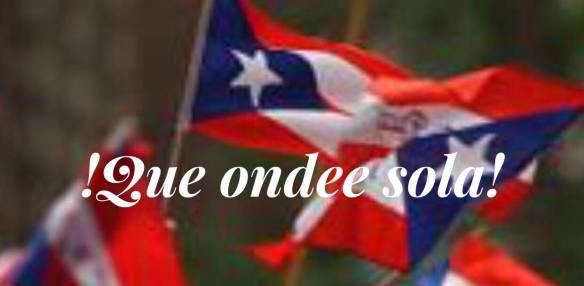

After reading all of this information in detail and remembering facts which were buried deep in my memories, added to the current state of affairs of the USA, there’s no way that I can, in my heart and soul, feel the same. Of course, one learns as one grows older. I can understand the resentment there is around the world against a mighty, powerful, oppressive country.
I don’t think this will ever change.
HortyRex©

#HistoricalFacts # AtrocitiesCommittedAgainstPuertoRico #USA #Master #Tyranny #UnincorporatedTerritory #CaribbeanSea #SpanishAmericanWar #BenevolentBenefactor #HasDarkSide #LaOperación #FemaleSterilizationPolicy #FDRs #OperationBootstrap #Vieques #IslandMunicipality #LaIslaNena #RadiationExperiments #DrPedroAlbizuCampos #ProminentLeader #IndependenceMovement #HumanExperimentation #WithoutConsentWarning #DrCorneliusRhoads #DeliberatelyInfectedCitizensCancerCells #PonceMassacre #ThePill #ExperimentationBirthControPill #DrGregoryGoodwinPincus #DrJohnRock #Colonization #LaLeyDeMordaza #Citizenship1917 #JonesAct #PuertoRicosStatus #USTerritory #Commonwealth1952 #USMerchantMarine #CabotageLaws

We ALL are ONE!!

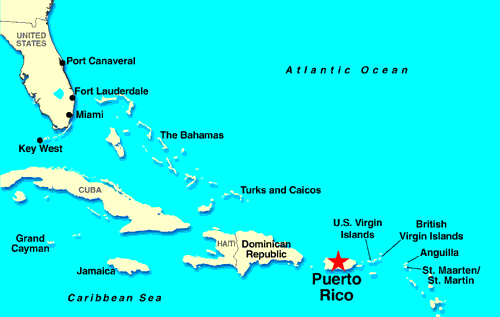
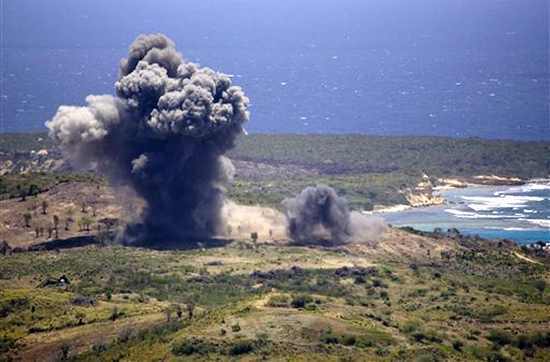
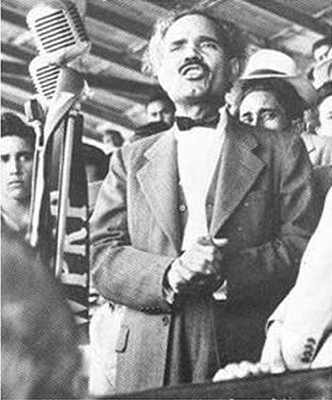
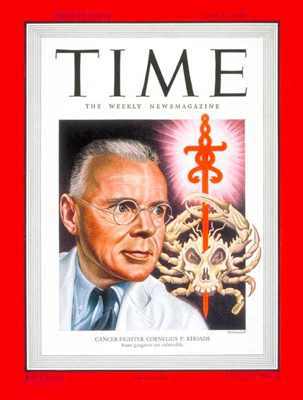
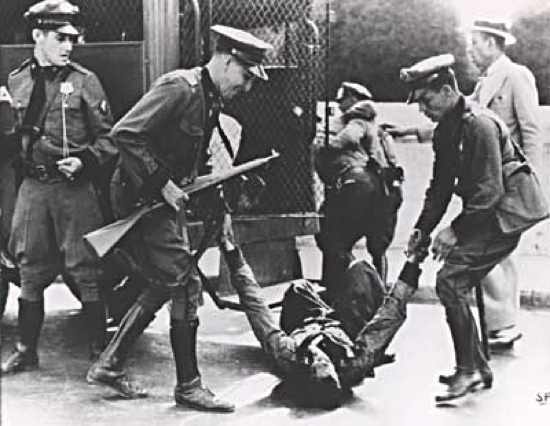

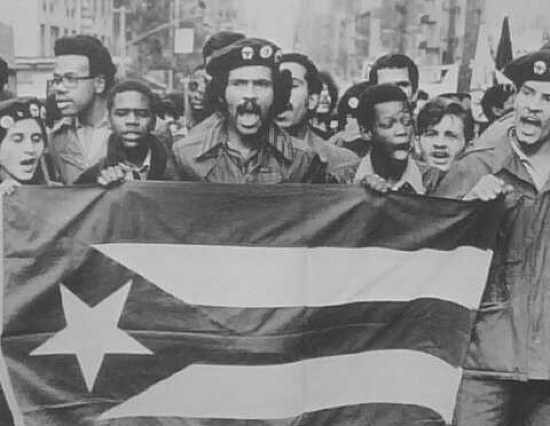
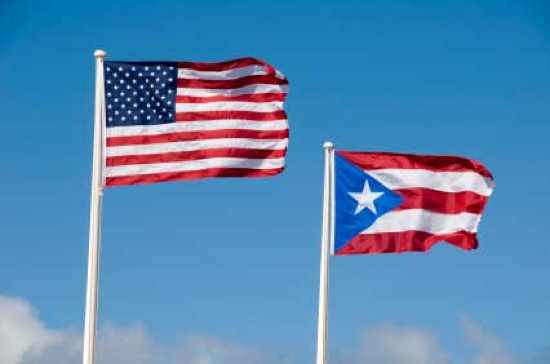
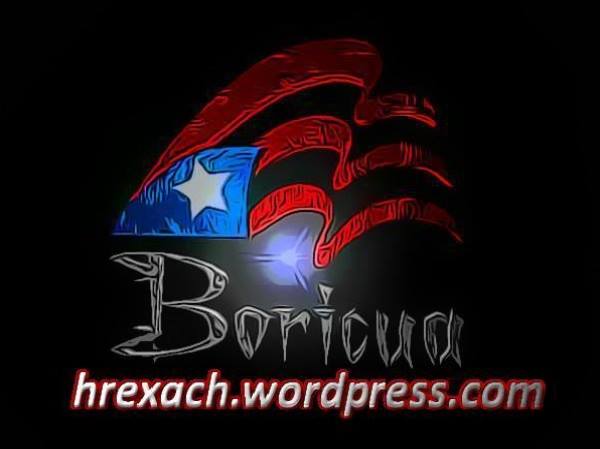

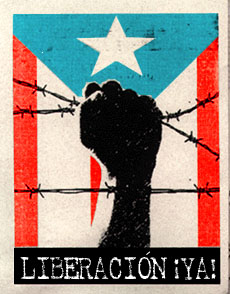
How tragic, I am sorry for us all Miss. Horty.
LikeLiked by 1 person
So am I … I came through this article yesterday. It saddened my heart ….. my “hero” …. the USA, has lost its luster …. in so many ways. This is another one …. many of these things happened when I was a baby/child … they don’t teach this in school. It’s all be squashed. Wouldn’t doubt this has happened in so many other countries!! Thanks for your comment!! 😦
LikeLiked by 1 person
Shoot they don’t teach this in college either. What a loss for the world!
LikeLiked by 1 person
Indeed …. many Americans don’t even know where PR is, or the currency, or the mail service or the telephone service. These are things that have happened to me!
LikeLiked by 1 person
Until recently the Puerto Ricons I had ever met were a few boys I met in summer school near Niagara Falls back in 1972 and the only Puerto Ricon whom I had ever heard of nationally was Sally Jesse Rafael. This is my loss.
LikeLiked by 1 person
My dearest friend …. you have missed a lot!! And I say this lovingly. The ones you’ve met aren’t typical of Puerto Ricans! LOL … the closest you’ve come to one could be me!! 🙂
LikeLike
The USA never learns. We need to respect the different cultures and thinking of peoples from other countries and not take advantage. It is no wonder why the arrogance of the USA is resented by many around the world.
LikeLiked by 1 person
I think that you hit it right on the $$ … the arrogance of the USA, resented in many, many places!!
LikeLike
I am totally gobsmacked by your post. I never knew any of this ever happened and of course, it will never be on any official US history archives. Thank you for highlighting this history. Even on TV Puerto Ricons are portrayed as the villians or aliens without any emigration status
LikeLiked by 1 person
You have no idea what your words mean to me! I was born and raised in Puerto Rico. Didn’t move to Florida until 1999. I was raised with the USA culture/history all my life. Many people have the wrong idea of my country and Puerto Ricans.
This was an eyeopener for me too. Thanks so much for your comment!! Hugs ….
LikeLike
Hugs back to you as well for opening my eyes to your world.
LikeLiked by 1 person
Reblogged this on The Militant Negro™.
LikeLiked by 1 person
TY for reblog!! It’s awful …
LikeLike
I…… uh……You……..eh…..they……..
Had chance to think up a sensible answer but I really can’t think of anything right now
I don’t want to live on this planet anymore.
❤
LikeLiked by 1 person
Dearest brother …. I know ho you’re feeling. Sometimes I don’t want to live in the plant anymore …. either!! Hugs!!
LikeLike
Puerto Rico ever reminds that Spain opened the New World not England. There were about 400 towns and missions in what became the SW United States a hundred years before the Pilgrims. I am 3/4 Italian and 1/4 Spaniard.
LikeLiked by 1 person
I’m fully Puerto Rican … a mix of Taino, Spanish and African.
LikeLike
Puerto Ricans repeatedly vote against becoming a state, but then wonder why they can not vote – is that because they will have to then pay income tax? They accept the gratuities that the US offers and then complain? If you have such strong feelings against the US, why stay? If the Americans were hurting them so badly, why didn’t they make it on their own?
LikeLiked by 1 person
You have the wrong impression …. Puerto Ricans do not vote repeatedly against becoming a state. That is what the main parties and the mainstream media want the general public to believe.
Like in many occasions, there’s more to the story than meets the eye … you’d have to be there to understand how the process works to get PRs to vote for statehood. As a matter of fact, there are only three options: statehood, independence and commonwealth. It’s not a simple “yes or no”.
Many political factions, including the USA, have vested interests in the Island. There was a time that it served as a vantage point in the 60’s during the missile crisis. In an island that is only 100×35 miles, there were many, many US military installations …. at this time, they are mostly all closed.
Accept the gratuities of the US? The US takes many things from the PRs …. culture, pride of a people, draft (during Vietnam), commerce, dealing with other countries ….
I do have strong feelings … yes, I do. “They” stay because at this moment in time, after so many years, the Puerto Ricans aren’t what they were when the indepence movement was strong … it was squashed by the US.
And, anyway, even if the PRs wanted/voted to become a state, it’s up to Congress to accept that request. It would cost the US more to accept statehood than keeping the “status quo”. It would also upset the electoral balance as far as elections go.
Pay taxes? PRs are already paying taxes … not openly like in the US but in the prices of goods.
When I lived there and worked for the federal government, I payed taxes to Puerto Rico and to the US.
It’s not as simple as it seems. It’s not black or white; it’s very gray …. And the information posted is a matter of history …. these were events that did occur since the end of the Spanish-American war.
Sorry, I strongly disagree with you on this topic. Why stay? Because leaving isn’t as easy as it sounds.
LikeLike
I thank you for such a lengthy explanation. As usual, I see there are always more sides to a coin than meets the eye. I just get so tired of people knocking down the US as they sit in front of their TVs and don’t even try to help.
LikeLiked by 1 person
It’s never my intention to do that …. I can see the reality from two points of view.
I lived in Puerto Rico until 1999. I was born and raised there ….. I grew up in a culture where the American presence was very strong. I grew up feeling American. I went to a private, Catholic school run by American nuns and priests. My mother taught Spanish to the priests in our parish.
Never, during those years, didn’t I think anything negative about the US. I was a strong believer about the fact that the US “was the greatest country in the world”. I didn’t know about all of the listed events. They didn’t teach that in school. Yet, as I’ve grown up and gotten older and wiser (I hope), I see another reality.
I don’t think that there is any perfection in any country. This world of ours is going down a slippery slope and it’s scary.
Sometimes I’m reminded about the fall of the Roman Empire. Please, don’t misunderstand me …. there’s a lot of work to be done …. yet I don’t think anyone is doing anything productive to make the world a better place.
I hope that this piece did make you think, as you said, about the “other side of the coin”. Peace …..
LikeLiked by 1 person
gpcox …. I just received my copy of the book “War Against All Puerto Ricans”, written by Nelson A. Denis, a New York based lawyer who studied at Harvard. His mother was Puerto Rican and his father Cuban.
Sounds like an interesting read …. FYI. Peace ….
LikeLike
This may also be an interesting site for further information.
Please, don’t misunderstand me … in no way intending to offend. Just offering “the other side of the coin”. I think this provides more information than what I was able to offer you.
LikeLike
The U.S. has bullied and abused many countries. 😦
LikeLiked by 1 person
Check out my next reblog …. I just received my copy of the book “War Against All Puerto Ricans” …. a must read!! Written by Nelson A. Denis ….
LikeLiked by 1 person
I will.
LikeLiked by 1 person
Reblogged already!! Hugs ….
LikeLiked by 1 person
LONG LIVE LIBERATION.
LikeLiked by 1 person
Yes, long live liberation!! I’m learning that now … my eyes are opening in a new way!!
Find out about a book called: “War Against All Puerto Ricans” by Nelson A. Denis …. a must read!! Paz …..
LikeLike
Thiz waz a good read. I knew of all but 1 of these incidentz and it truly iz a damn same that the world and most of itz people are vile and evil..yet it it iz my duty to fight Black az long az I have life. Panther Love
LikeLiked by 1 person
TY … check out this blog. The author has written an absolutely incredibly real, accurate, researched and documented book. It’s all historical fact ….
LikeLiked by 1 person
Pingback: Translating a very important question … “Who depends on whom?” | It Is What It Is
Reblogged this on It Is What It Is and commented:
In view of what is happening in my country, Puerto Rico, after Hurricane María practically flattened it and adding to it the response of the American government, owner and master of Puerto Rico …. I would like to reblog this post which I worked on two years ago.
These are historical facts … this is the way the mighty, imperialistic U.S. of A. has treated its ‘colony’ since it took ‘possession’ of it in 1898.
#BeyondSad … words fail me!!
LikeLike